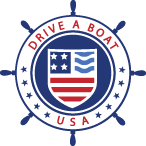Aquatic Nuisance Species in Florida
Aquatic nuisance species are plants, fish, mollusks etc. that are not native to an area but spread quickly once introduced and cause harm to the local ecosystem and human health, recreational and economic interests. They may kill, starve out or displace native species, affect public water supplies, cause flooding or detract from the enjoyment of local waterways.
Types of aquatic nuisance species in Florida
These are just a few of the main aquatic invasive species causing problems in Florida.
Green mussels
Green mussels settle on surfaces below the water and form large masses. They edge out other species such as oysters, restrict water flow to pipes, sink buoys and create drag on boat hulls. They grow quickly, and their larvae can spread easily through ballast or bilge water.
Lionfish
The lionfish is an aquatic invasive species with venomous spines that spawns at an incredible rate. They eat large quantities of native species, including some that keep algae in check, and compete with native predatory fish for food. The Florida Fish and Wildlife Conservation Commission actually encourages spearfishing events and commercial fishing to remove as many lionfish as possible from Florida waters.
Hydrilla
Hydrilla is an aquatic weed that grows very quickly into dense canopies that float near the surface of the water. The canopies block waterways, foul propellers and can even cause flooding. They are also ideal breeding grounds for mosquitoes. Hydrilla reproduces easily from fragments that get caught in boat propellers and can survive for up to two weeks out of the water.
What boaters can do to help prevent the spread of aquatic nuisance species in Florida
Recreational boaters can unintentionally spread aquatic nuisance species as they move their vessels from one waterway to the next. As a boater, you can help stop the spread by making sure to clean, drain and dry your vessel every time you remove it from the water. Here are the steps to follow:
- Inspect and remove any visible plant and animal life from your vessel (mollusks attached to the hull, plant fragments in the propeller, etc.)
- Clean the vessel by rinsing it, preferably with hot water
- Drain the motor, bilge, livewell and any other space that can hold water
- Let everything dry for at least five days or dry manually before entering another body of water
For further details about stopping the spread of aquatic invasive species, visit the Stop Aquatic Hitchhikers campaign website.
Learn more about boating with Drive a Boat USA
Taking steps to prevent the spread of aquatic nuisance species is one of the things every boater should do to help keep Florida’s waterways safe and enjoyable for everyone. There are also Florida boating regulations and general boating practices recreational operators should be familiar with in order to boat safely and in compliance with state law.
Learn everything you need to know about boating with Drive a Boat USA’s boating safety course, and take the exam online to obtain your Florida boater education identification card!

